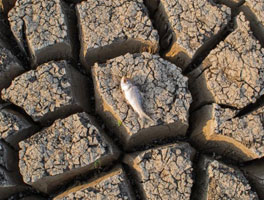 |
Dear readers,
Welcome to the Climate Weekly newsletter by the Centre for Science and Environment’s Climate Change programme and Down to Earth.
The IPCC has emphasized a greater urgency in phasing out coal over reducing natural gas or oil usage in order to achieve our collective climate goals, which places a heavier burden on coal-dependent developing countries. At COP 28 in Dubai last year, the outcome document of the conference mentioned “transitional fuels” for energy security, alluding to natural gas. Although natural gas is often referred to as a “bridge fuel” – meaning that countries can use it as a cleaner alternative to coal in the interim while they also build up renewable energy - emerging evidence suggests that it may not in affect be much cleaner than coal, especially when we factor in methane emissions alongside carbon dioxide emissions.
In a new article, I delve into the comparisons between coal and gas to understand whether natural gas truly has a lower climate impact than coal. Natural gas emits 50 per cent less CO2 than coal into the atmosphere, when burnt. However, a “lifecycle assessment” which evaluates all the GHG emissions throughout the coal and gas supply chains shows that there is more to it. Methane releases, through “unintentional” leaks and “intentional” venting and flaring, from the natural gas supply chain are a key factor in creating parity between the overall GHG emissions between gas and coal. While methane – the second-most abundant GHG after CO2 – disintegrates faster than CO2 in the atmosphere, it has a much stronger planetary warming effect, trapping over 82.5 times more heat than CO2 over a 20-year period. Evaluating the true climate impacts of natural gas and coal is crucial for informed decision-making in the transition away from fossil fuels.
Elsewhere, the IMD predicts a scorching summer for India in 2024. You can learn this week about Zakariyapura — India’s climate-smart model village which has created a sustainable biogas network that not only helps women financially but also reduces their burden of household work. And you can register for an online training course on ‘Demystifying Environmental and Sustainability Data for Effective Communication in the 21st Century’ by CSE.
|
|
 |
| |
 |
|
| |
 |
 |
| |
By - Fizza Zaidi
Climate Change, CSE
|
| |
|
 |
|
|
| |
 |
|
| |
| EXTREME WEATHER TRACKER |
| |
IMD predicts a scorching summer for 2024, 01 April 2024
|
 |
 |
|
|
| |
 |
|
| |
 |
 |
India’s parched rivers: At least 13 without water, much lower than same period last year, 01 April 2024
|
|
|
| |
 |
|
| |
|
|
| |
|
|
| |
|
|
| |
 |
|
| |
CLIMATE NEWS | SCIENCE| IMPACTS| POLITICS |
|
| |
 |
|
| |
|
|
| |
 |
|
| |
|
|
| |
 |
|
| |
|
|
| |
 |
|
| |
|
|
| |
 |
|
| |
|
|
| |
 |
|
| |
|
|
| |
 |
|
| |
|
|
| |
 |
|
| |
|
|
| |
 |
|
| |
|
|
| |
 |
|
| |
|
|
| |
 |
|
| |
|
|
| |
 |
|
| |
| Online Training |
|
Onsite Training |
| |
|
|
|
|
|
|
|
|
| |
|
|